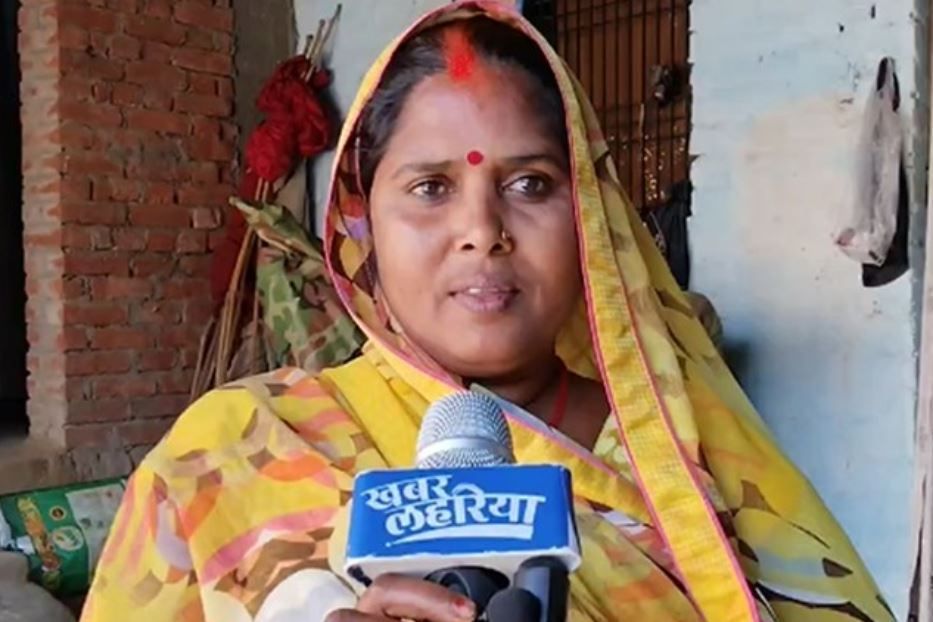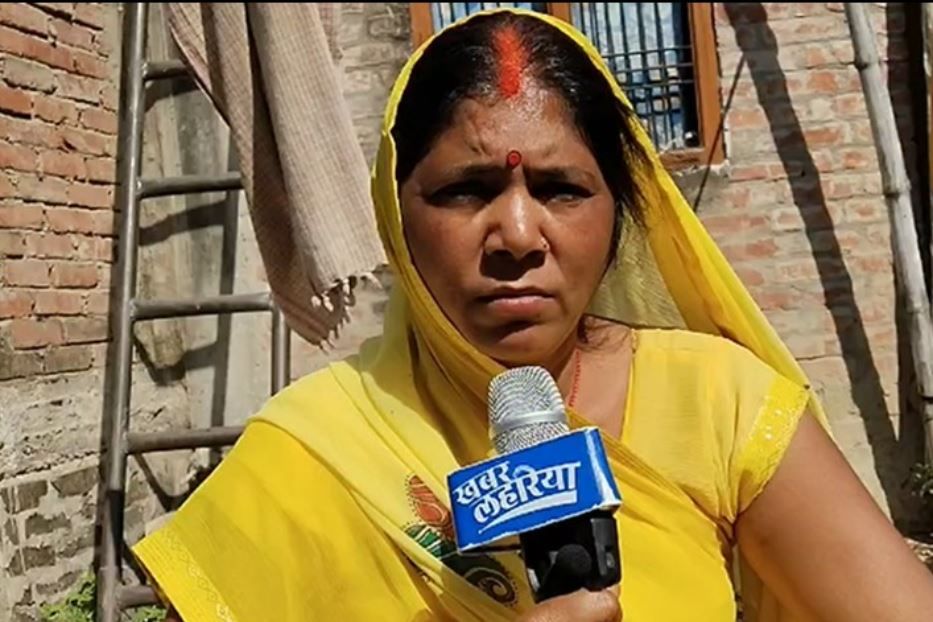Exploited and invisible: the landless women farmers of India
di Redazione
Deprived of the right to own the land they cultivate, women in the most remote rural areas struggle to gain recognition for their role within both the community and the family

In India’s agrarian land, women like Kanchan, Shakuntala, and Meena are the unseen backbone of farming, toiling the land from dawn till dusk. Yet, despite their tireless labor, they are denied the most basic right to the very soil they nurture: land ownership. The system is designed to strip them of agency, leaving them vulnerable to exploitation, patriarchal control, and systemic neglect. Though laws exist to protect their rights, cultural biases, family feuds, and a lack of awareness keep them shackled to a future where their hard work never translates to real empowerment. In a world that continues to diminish their contributions, the fight for land is not just a matter of property—it’s a question of survival, dignity, and the right to a future they can truly call their own.
Kanchan, a woman farmer from Ambedkarnagar in rural Uttar Pradesh worked the fields from dawn till dusk, her hands stained with the soil of 1.5 bighas of land she had labored on for years. Yet, the land isn’t hers. Despite being the one who ploughed, sowed, and harvested, the deeds are registered in her husband Ramnaresh’s name. And Ramnaresh, now remarried with children from his second wife, held the land like a piece of currency—one he could sell whenever he chose, constantly reminding Kanchan of his power.
She had no say in the matter. «I work, I sweat, I give everything to this land, yet nothing is mine», Kanchan said. «Ramnaresh can sell it whenever he wants. He threatens me with it every day, and there's nothing I can do».
The earnings from the harvest, which should have been hers, ended up in his hands, leaving Kanchan with nothing but the hard labor and the empty promise of a better future. She knew little about her rights—none of the government schemes had reached her, and no one had told her she could claim the land. Without support, she was trapped in a cycle, where even the very land she worked belonged to someone else.

Shakuntala’s life was tethered to the fields—though she never owned them. The land she once worked tirelessly now belonged to her brother-in-law, a casualty of a family feud that had stripped her of more than just a piece of earth. It was as if the soil she had once felt a kinship with had turned cold, indifferent, like a forgotten memory. Her hands, cracked and worn from years of toil, now had no claim to what they had once nourished.
«How does one live without a piece of land?», Shakuntala asked, her voice quiet but heavy, a question to no one in particular. «I’ve given my sweat, my blood, my whole life to it... and now, it’s his. What am I left with?».
The sun burned above, but there was no warmth in the air, only the reminder that the land—like her place in it—was never truly hers to hold.
Farming in India has always relied on women’s labor, yet their contributions remain unacknowledged and undervalued. Women are the backbone of India’s agrarian economy, carrying out 75% of non-mechanized farming activities like sowing, winnowing, and harvesting. Despite their indispensable role, women face systemic marginalization, particularly regarding land ownership—a critical determinant of financial independence and social equity.
According to a study by the University of Maryland and the National Council of Applied Economic Research, women constitute 42% of the agricultural labor force in India but own only 2% of agricultural land. Nationally, women own just 14% of land holdings, with the disparity even starker in states like Uttar Pradesh and Bihar, where patriarchal norms and inheritance laws often exclude women.

Kanchan’s struggle with land ownership is not just about property; it is about survival, dignity, and autonomy. Without official rights to the land she tills every day, she is excluded from vital government support programs that could alleviate her hardships. The Kisan Credit Card, compensation for crop losses, agricultural subsidies, and even extension services — all remain out of her reach.
Despite India’s progressive legal framework, such as the Land Acquisition Act that recognizes the rights of women, especially single women, the system’s convoluted implementation leaves many like Kanchan in limbo. She has been without land rights on her National Rural Employment Guarantee Act (NREGA) card for a decade, leaving her without the benefits associated with land ownership. Worse, she is ineligible for the Pradhan Mantri Awas Yojana, leaving her with a house she can call home, but not in her name.
«Land rights bring dignity. If a man remarries, at least having land in a woman's name ensures she can live with some respect», Kanchan says, the weight of her words echoing the frustration of countless women whose labor is vital to the land, yet their names are absent from it.
Kanchan’s words speak to a larger issue - how the denial of land rights doesn’t just limit financial opportunities; it strips women of their agency, leaving them vulnerable in a system designed to perpetuate inequality.
Meena Sharma has spent her entire life cultivating the land, but despite her years of labor, she has no claim to it. «I work a lot in farming, but it's not in my name—that's the pain», she says, her voice heavy with the frustration of contributing so much without ownership. «What comes from it, the men handle selling, while I do all the work, like a servant, just toiling away». She fears for her future. «Right now, I have my husband, but given what’s happening around us, what if he transfers the land to his daughter-in-law or her children? What will I do then?». Meena is deeply aware of how easily the land could slip from her grasp, even though she has spent her life working it.
The issue of land ownership for women isn’t just about having their name on the deed — it’s about their dependency on the land, their role within the family, and their position in the broader land rights struggle. «Land rights are not just about writing women’s names on papers. It's about how dependent she is on that land, her role within the family, and ensuring that every woman in the family has her own share of land. Only then can the motive of land rights truly be fulfilled», says Chandrakala, who has been working with Ekal Nari Shakti Sangathan in the Indian state of Rajasthan for over 20 years.
Despite progressive reforms like the Hindu Succession Act amendment granting daughters equal inheritance rights, cultural biases still hinder women's land ownership. Government schemes for distributing wasteland to landless households also fall short due to loopholes, treating households as single units and favoring men in land transfers. In rare cases, women receive land, but the numbers are minimal—like in 2017, when only 7% of land titles in two Mirzapur villages went to single women. These policies focus on household land rights rather than individual ownership.
Anu stands in her field, where the yellow mustard crop is spread far and wide. She carefully pulls out the weeds growing in the field one by one, so that fodder can be prepared for the domestic animals. Anu, 53, is a struggling farmer from Mahoba, who has land, but the path to acquire it was not easy. «After my husband's death, I fought with the landlords to get this land in my name. My husband had leased this land for Rs 1100, but the landlord was not ready to write this land in my name», Anu says, recalling her experience.
This land is now in her name, but the struggle she went through to get it is not hidden from anyone. For Anu, this land is not just an asset, but her self-respect and a fight to prove herself.Women can acquire land through inheritance, gifts, purchases, or government transfers, but these avenues remain structurally biased against them, as per Bina Agarwal in A Field of One's Own (1998). Inheritance is particularly significant in South Asia, where land is predominantly privately owned, and women often lack the financial means to purchase property. However, since religious laws largely govern inheritance, they have historically disadvantaged women, leading to widespread discrimination. Even in land markets and redistributive reforms, women face barriers due to income disparities, limited access to credit, and social bias, as noted by the World Bank Development Report, 2012.
Sadhna Dwivedi, an advocate at Banda Court, explains: «By law, a woman can claim land only after her father’s or husband’s death. But even then, it is rarely written in her name». Land, in essence, remains an inheritance women must fight for, rather than a right they naturally possess.
Anu is working diligently in her fields when a government official explains to her that the land has now been registered in her name. However, when asked about government schemes, Anu’s face reflects confusion. «I only know that the land is now in my name, but I don’t know anything about other government schemes or assistance», Anu says.
She is grateful for the land rights granted to her by the government, but she realizes that without proper information, accessing government schemes becomes challenging. While her land is now officially in her name, questions remain about how other government initiatives might benefit her.
For women like Anu, securing land rights is a major step forward, but understanding and utilizing the full scope of government support is the next hurdle they must overcome to ensure their hard work yields the best possible results.
Saroj from Farmer’s Union, Banda shared, «we had a case where a woman farmer, after the death of her husband, was left to struggle for land that she had worked on her entire life. Her in-laws weren’t ready to transfer the land to her name, despite the fact that she had been the one doing all the agricultural labor—sowing, harvesting, and maintaining the land. She was left with nothing, with no legal claim to the property that she had worked so hard to cultivate. In such situations, the legal system is often slow to act, and the woman’s rights are overlooked. This is a harsh reality for many women farmers. The law needs to change to ensure that women, especially widows, have clear and immediate rights to the land they’ve worked on». «Most cases, if they go to court, take years to settle. So we try to resolve them outside the legal system—by hook or by crook», says Chandrakala.
«We have seen so many cases where, after a husband's death, women are left with nothing. Their in-laws refuse to give them land, and at the same time, many women hesitate to ask for their share from their parental family, fearing it might strain their relationship with their brothers. This leaves them in a helpless position. That’s why we focus on awareness and advocacy, helping them understand their rights and pushing for solutions that don’t leave them empty-handed».
Durgavati, a determined woman farmer from a small hamlet in Ambedkarnagar, works tirelessly on 14 bighas of land. Despite dedicating her labor to the fields day in and day out, she does not own the land. Now in her early 60s, a sense of unease constantly lingers in her mind.
«What will happen when I can no longer work the land?», she wonders aloud, her voice reflecting a quiet but deep-seated fear. The thought of aging without any claim to the land she has spent decades nurturing haunts her, leaving her uncertain about her future.Though she has worked the land as hard as any landowner, without legal rights to it, Durgavati faces a stark reality—her labor, her life’s work, might not secure her anything beyond today. The fear of an uncertain tomorrow, one where she might be displaced or left without any source of income, is a reality for countless women like her, whose contributions to agriculture are often invisible but essential.
For women farmers in Uttar Pradesh, the challenges extend beyond policy gaps. From waking at 4 a.m. to cook for their families, working in the fields until dusk, managing livestock, caring for children and the elderly, and guarding crops from stray cattle, their daily lives are consumed by labor—both agricultural and domestic.
Saroj speaking on the issue of land rights for women like Durgavati, says «women like Durgavati, who work tirelessly on the fields, often find themselves excluded from the legal ownership of the land they cultivate. This systemic injustice is not just a violation of their rights, but a direct threat to their future security. Without land rights, women have no safety net, no recognition of their labor. Our union has been advocating for stronger policies to ensure that women farmers not only have access to the land they work on, but also the legal empowerment to claim ownership. It's high time that their contributions are fully acknowledged, and their rights protected under the law».
«Single women, especially those from marginalized backgrounds, are the most vulnerable. Securing their land rights has been incredibly difficult—not just because they have to fight for the land itself, but also because they face constant intimidation from landowning families», says Chandrakala.
«Every case is different, and so is the opposition. Sometimes its in-laws refusing to transfer land, sometimes its brothers unwilling to share inheritance, and other times its powerful landlords pressuring them to give up their claims. The struggle isn't just legal—it’s social, economic, and deeply personal».
© RIPRODUZIONE RISERVATA







